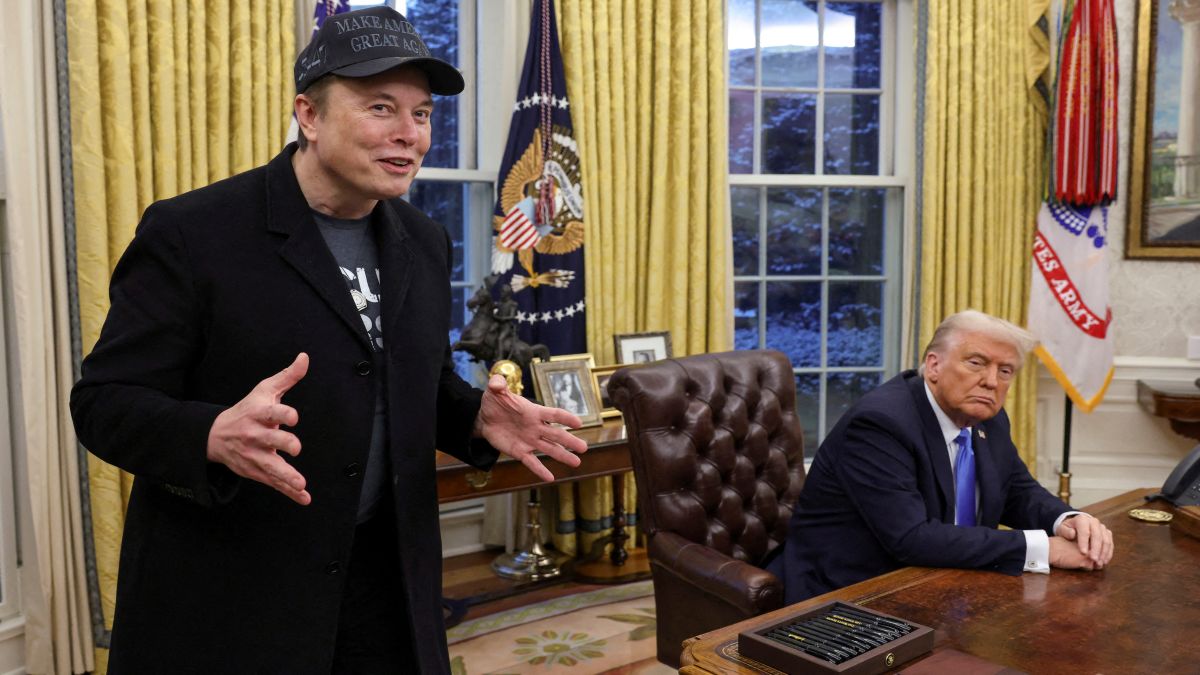) |
|
The article details a controversy surrounding Elon Musk's involvement with the Pentagon and a potential briefing on a US war strategy with China. Musk, a top advisor to former President Donald Trump, has threatened to prosecute Pentagon officials who allegedly leaked information to the New York Times about this meeting. This threat came after the New York Times reported that the Pentagon might brief Musk on the US war strategy, raising concerns about his expanding role in the government, given his business interests. However, both Trump and the Pentagon have denied that China's war strategy was on the agenda for the meeting. Trump called the New York Times report "completely untrue" on his Truth Social platform, and Musk reposted Trump's comments on X, calling the New York Times "pure propaganda." Musk then stated he looks forward to the prosecution of those leaking "maliciously false information." This incident has fueled existing criticism of Musk, with concerns being raised about potential conflicts of interest due to his role in the administration and his ownership of companies like SpaceX, which provides services to the government. Critics on social media have questioned the transparency of Musk's involvement in Pentagon briefings, particularly in relation to his role in DOGE, which is tasked with cutting government costs. One user questioned how Pentagon briefings tie into his role at DOGE, suggesting that Musk might be venturing into "murky territory." Another user pointed out a contradiction in Musk's language, asking how anything could be leaked if the information was fabricated. The situation highlights the growing scrutiny of Musk's influence and access to sensitive government information, especially given his public statements and the potential for his business interests to influence his actions. The article showcases the complex interplay between politics, media, and technology, especially with a figure like Elon Musk who holds positions of influence in multiple sectors. The potential implications of private citizens with business interests being privy to highly classified information raise serious questions about national security and the balance of power.
The core issue revolves around the dissemination of potentially classified information regarding a hypothetical conflict with China. The New York Times' reporting on a potential Pentagon briefing for Elon Musk regarding US war strategy against China sparked a series of reactions, culminating in Musk's threat of prosecution. The implications of such a leak, whether the information was accurate or fabricated, are significant. If the information was accurate, the leak could compromise national security by revealing strategic plans to potential adversaries. If the information was fabricated, it could still damage the reputation of the Pentagon and fuel distrust in the government. Musk's reaction further complicates the situation, blurring the lines between his role as a private citizen and his influence within government circles. His threat of prosecution raises concerns about potential abuse of power and the chilling effect it could have on whistleblowers or journalists who report on government activities. The conflict of interest argument is further bolstered by Musk's involvement with companies like SpaceX, which has contracts with the government, creating a situation where his private business interests could potentially influence his access to and use of classified information. The debate surrounding Musk’s transparency is also important. His critics claim he is not being transparent enough about his involvement in Pentagon briefings. They want to know how these briefings relate to his role in DOGE and how his various roles overlap. It touches on issues of accountability for those in powerful positions, especially when those positions involve both public service and private enterprise.
The incident underscores the evolving relationship between technology, government, and media. Elon Musk, a prominent figure in the technology industry, has become increasingly involved in political discourse and government affairs. His ownership of X (formerly Twitter) has given him a powerful platform to influence public opinion, and his advisory role to former President Trump further solidified his position within political circles. This raises concerns about the concentration of power in the hands of a few individuals and the potential for these individuals to use their influence to shape public policy and national security agendas. The media's role in this situation is also crucial. The New York Times' reporting sparked the controversy, highlighting the importance of investigative journalism in holding powerful figures accountable. However, the incident also illustrates the challenges that media outlets face in reporting on sensitive government matters, particularly when sources are reluctant to speak on the record. The use of social media by figures like Trump and Musk to disseminate information and react to media reports further complicates the landscape, allowing them to bypass traditional media channels and directly engage with the public. This can lead to the spread of misinformation and the erosion of trust in established institutions. Ultimately, the controversy surrounding Musk and the Pentagon highlights the need for greater transparency and accountability in government and the importance of safeguarding national security while protecting freedom of the press. The convergence of technology, politics, and media presents new challenges for maintaining a healthy democracy and ensuring that powerful individuals are held accountable for their actions. The discussion about leaking also has bearing on future information access. The actions taken in this situation could impact those looking to expose government secrets. Prosecuting leakers could chill free speech and limit the information available to the public.
Source: Musk threatens ‘prosecution’ of Pentagon leakers over top secret potential China war briefing
